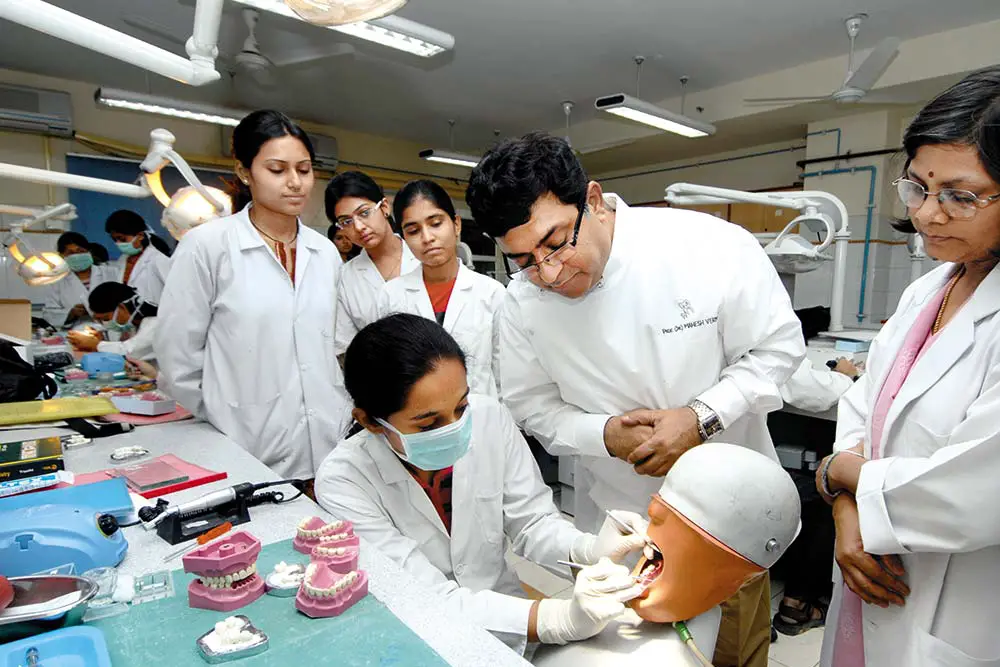In the realm of higher education, diversity, and inclusion have gained significant traction as critical components of fostering enriching learning environments. This focus is especially pertinent in professions like dentistry, where the role of creating a truly welcoming and inclusive college environment is paramount. In this article, we will delve into the pivotal role that diversity and inclusion play in a dental college and why cultivating a profound sense of belonging among students from multifarious backgrounds is of utmost importance.
Your journey to becoming a skilled dentist begins with enrolling in the best dental college in Punjab.
The Crucial Impact of Diversity in Dental Education
Embracing Diversity
1. Diverse Student Body
An inclusive dental college proactively seeks and celebrates the enrollment of students from a plethora of racial, ethnic, cultural, and socioeconomic backgrounds. Embracing diversity contributes to an academic milieu teeming with varying perspectives, ideas, and life experiences. The advantages of having a diverse student body extend well beyond the classroom, as it prepares future dental professionals to serve a wide spectrum of patients effectively, irrespective of their cultural or ethnic backgrounds.
2. Global Perspectives
In an increasingly interconnected world, dental professionals must be equipped to provide care to patients from diverse and multicultural backgrounds. A diverse student body exposes future dentists to a wide array of cultural perspectives and healthcare practices, thus equipping them with the cultural competence needed to deliver effective and culturally sensitive care. This global perspective is invaluable in an era where oral healthcare providers interact with patients from myriad ethnicities, ensuring that patients receive care that is both effective and respectful of their cultural norms.
Benefits of Inclusivity
3. Fostering Inclusive Learning
True inclusion goes beyond the mere numerical representation of diverse backgrounds in the student body; it entails creating an environment where every student feels profoundly valued and heard. Inclusive dental colleges prioritize equitable access to resources, ensure the availability of supportive faculty, and cultivate a curriculum that recognizes and respects individual differences. When students experience genuine inclusion, they are more likely to actively engage in their educational journey, contributing to a vibrant and dynamic academic community.
4. Enhanced Learning Outcomes
Research has consistently shown that diverse and inclusive classrooms lead to superior learning outcomes. Collaborating with peers from different backgrounds exposes students to alternative problem-solving approaches and nurtures robust critical thinking skills. This not only augments the students’ educational journey but also enhances the quality of care they will provide to patients in their future careers.
Creating a Supportive Community
5. Mental Health and Well-being
An inclusive dental college places a premium on the mental health and well-being of its students. It recognizes that the rigors of dental education can be demanding, and as such, provides an array of resources and support systems to help students cope with these challenges. In this manner, a welcoming and inclusive college experience is cultivated, ensuring that students not only excel academically but also enjoy optimal mental and emotional well-being.
6. Building Cultural Competency
Cultural competence is an indispensable skill for future dental professionals. Inclusive dental colleges offer students opportunities to engage in cultural competence training, enabling them to better understand and connect with patients from diverse backgrounds. This training extends far beyond the classroom, encompassing real-world experiences that prepare students to provide culturally sensitive care.
Addressing Health Disparities
7. Reducing Disparities in Oral Health
Inclusive dental colleges make substantial contributions toward reducing disparities in oral health care. Graduates who have been educated in diverse and inclusive environments are better equipped to serve underserved communities and address oral health disparities. Their exposure to diverse patient populations equips them with a profound understanding of the unique challenges different communities face, enabling them to work toward equitable access to dental care.
8. Preparing Future Leaders
Diversity and inclusion inherently foster leadership skills. Inclusive dental colleges empower students to become advocates for change, not only within their profession but also in the broader healthcare landscape. Graduates emerge as not just skilled clinicians but as leaders who champion diversity, equity, and inclusion in dental practice and healthcare policy.
The best dental college in Punjab offers comprehensive education and hands-on training in dentistry.
Conclusion
A welcoming dental college transcends being a mere institution of education; it stands as a beacon of diversity and inclusion. By wholeheartedly embracing students from a vast spectrum of backgrounds, nurturing inclusivity in learning, and building a supportive community, dental colleges create an environment where students flourish both academically and personally. Moreover, such colleges make profound contributions to diminishing oral health disparities and molding future dental professionals who are exceptionally well-prepared to meet the diverse needs of their patients. In an era that rightfully celebrates the beauty of differences, dental colleges that wholeheartedly prioritize diversity and inclusion are at the vanguard of dental education, shaping a future that is brighter, more equitable, and more compassionate in the realm of oral healthcare.
Relaxation music for anxiety and stress relief
Laptop Repair Made Easy: The Complete Guide for Beginners to Experts




